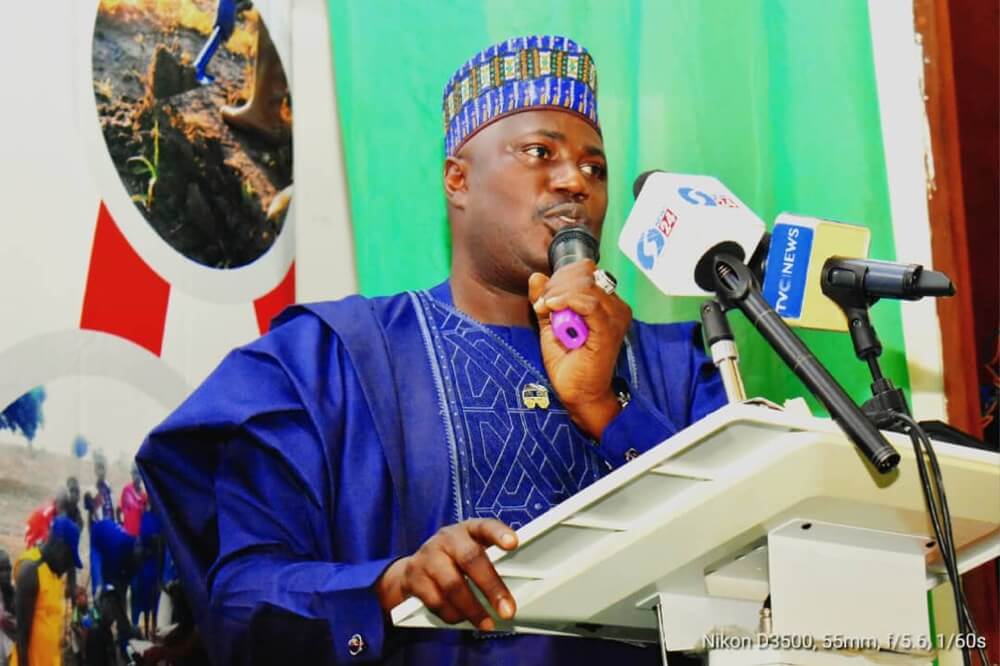827
By Lizzy Chirkpi
The Federal Government has commenced a nationwide soil mapping project under the National Farmers Soil Health Scheme, aimed at providing farmers with accurate soil data to improve crop productivity and help investors identify viable agricultural opportunities across the country.
The initiative was announced by the Minister of State for Agriculture and Rural Development, Senator Sabi Abdullahi on Thursday, during a workshop on the Nigeria Soil Information Systems (SIS) held in Abuja.
He noted that the idea is simple but powerful to move Nigerian farming from guesswork to science. Farmers will now get clear, data-driven advice on what crop grows best in their specific soil and the exact nutrients it needs.
“For too long, our farmers have planted based on feeling, using any fertiliser blend available, which led to high costs and low yields. This scheme will provide expert advice on the right crop for a specific soil and the exact nutrients it requires. This lays the foundation for precision agriculture in Nigeria,” Senator Abdullahi said.
The Minister explained that the programme is a direct response to the rising cost of farm inputs and stagnant yields that have eaten into farmers’ profits and slowed the country’s food security drive. He added that the plan is part of President Bola Tinubu’s vision for food sovereignty where Nigeria produces what it eats.
Although the scheme aims to make agriculture less risky for investors. Out of Nigeria’s 73 million hectares of arable land, only 34 million hectares are currently being cultivated, leaving vast opportunities untapped.
“The soil determines what can be done in the country. When we have a standardised soil information system based on global best practices and with integrity, investors will be happy to come in. This system guarantees that when you come in, you will not be clueless. You will have focus,” Abdullahi explained.
By using credible soil data, the government hopes to guide investors toward the most promising crops and regions, saving time, reducing uncertainty, and ensuring better returns.
The scheme is already drawing strong backing from international partners. The Regional Hub for Fertiliser and Soil Health, located at the International Institute of Tropical Agriculture (IITA) in Ibadan, is providing the technical support to ensure the system runs on modern technology and regional standards.
Dr Bernard Vanlauwe, Deputy Director General of IITA, was full of praise for Nigeria’s efforts.
“I’m really, really very happy to see the advance made with the Nigerian soil information system,” he said.
He explained that the Hub will help maintain standardised soil procedures across West Africa while also training Nigerian experts to sustain the system.
Dr Vanlauwe added that the collaboration which includes the World Soil Information Centre (ISRIC) will ensure that the data coming from Nigeria’s soil system is credible, reliable, and globally comparable, a key condition for attracting international agricultural investors.



